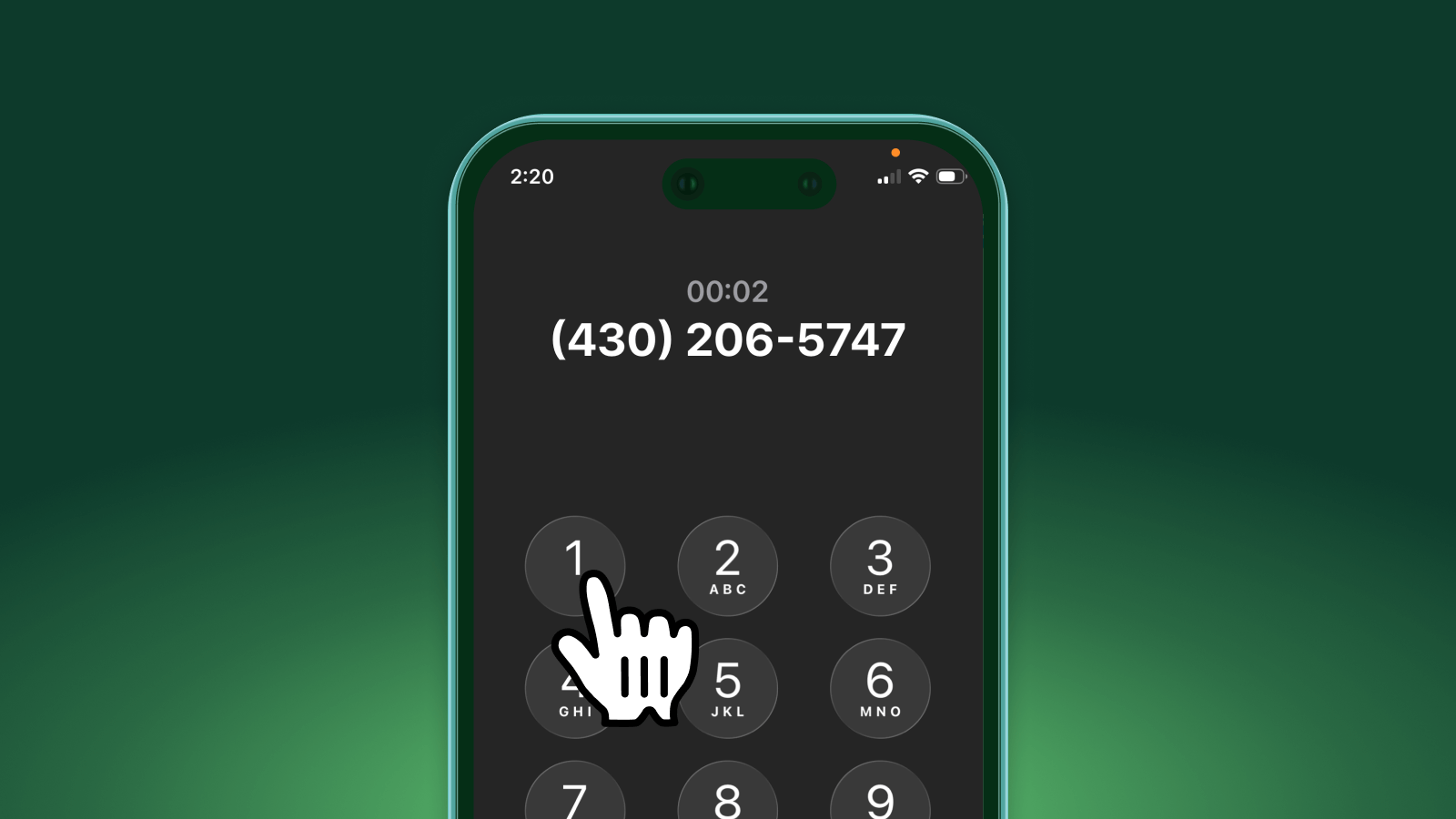- Intelligent call routing automatically sends each caller to the right person or department, so you never miss an important call.
- It helps businesses save time, reduce hold times, and give customers faster, more personalized service.
- Upfirst makes intelligent call routing simple for small businesses—set it up in minutes and start routing calls automatically.
If you’ve ever lost a customer because their call went to the wrong person or to voicemail, you know how frustrating that is. For many small businesses, a single missed or misrouted call can mean a lost sale, an unhappy client, or a hit to your reputation.
That’s where intelligent call routing helps. It’s a smarter way to manage your phone lines that automatically sends each caller to the right place based on who they are, what they need, and where they are calling from.
In this post, you’ll learn what intelligent call routing means, how it works behind the scenes, the real benefits for your business, and which industries get the most value from it.
What is intelligent call routing?
Intelligent call routing is a phone system feature that automatically directs incoming calls to the best person, department, or location, without forcing callers through long “press 1, press 2” menus.
Traditional call forwarding or IVR follows fixed rules like “forward all calls to this number.” Intelligent call routing uses data and context to make smarter decisions in real time.
Here is the simple version of how it works:
- It detects or collects caller information such as location, reason for call, customer account information, and quick menu choices.
- It matches the caller to the right destination, for example an available agent, local branch, or a specialized department.
- It improves over time by learning from results, so routing gets more accurate and errors go down.
Think of it as a helpful assistant that knows exactly where every call should go, without asking twice.
How intelligent call routing works behind the scenes
There is a clear process running every time someone calls your business.
Data gathering
The system pulls details like caller ID, phone number, location, and past interaction history from your CRM or call logs.
Intent detection
Based on what the caller says or selects in a short menu, the system identifies the reason for the call, such as support, sales, or scheduling.
Skill-based or priority matching
Calls are routed to the agent, team, or branch best equipped to help. You can also prioritize VIP customers or urgent situations.
Routing execution and fallback
If the first choice is not available, the system tries the next best option. That means no dead ends and fewer missed calls.
The result is faster answers, fewer transfers, and a smoother experience for your team and your customers.
The real benefits for businesses
When call routing gets smarter, the entire customer experience improves. You can expect:
- Fewer missed calls and faster responses. Calls reach the right place quickly, which reduces hold times and lost opportunities.
- Shorter wait times and higher first-call resolution. More callers get help from the right person on the first try.
- Smarter routing for multi-location teams. Callers connect to the correct branch or office by ZIP code or region.
- Improved team efficiency. Your team spends more time helping and less time transferring.
- Happier customers. A smoother experience builds loyalty and raises satisfaction.
Many businesses that add intelligent call routing service see faster resolution times and a clear lift in customer satisfaction.
What types of businesses need intelligent call routing?
Almost any business that handles more than a handful of calls a day can benefit, but some see more gains than others.
Multi-location and franchise businesses
Property management firms, retail chains, and dental groups can route calls to the right office based on caller location, so each branch handles its own customers.
Service-based SMBs
Plumbers, electricians, HVAC, and pest control teams need to answer fast. Intelligent routing can prioritize emergencies and route by service area to handle urgent jobs first.
Contact centers and customer support teams
Calls land with an agent who has the right skills, which reduces transfers and improves resolution rates.
Financial, legal, and insurance firms
Clients with questions about claims, billing, or loans can be sent directly to their assigned agent or licensed professional, which saves time and reduces compliance risk.
Healthcare providers
Hospitals, clinics, and dental offices can route by department. Appointments go to scheduling, billing goes to finance, and emergencies go to urgent care.
Government and utilities
City departments, 311 lines, and utility companies can direct residents to the right office without asking them to repeat information.
E-commerce and retail
Order and return questions can route to the correct fulfillment center or support team immediately.
Tech and SaaS companies
Support calls can be triaged by issue type, such as billing or technical, so the right specialists handle tickets faster.
How to implement intelligent call routing without overcomplicating it
You do not need a large IT team or custom software to get started. Follow these steps:
- Start small. Decide which calls need routing by department, skill, or location.
- Integrate your CRM or calendar. Recognize returning callers and schedule follow-ups automatically.
- Test with a small group. Try routing from one phone number or department first.
- Review analytics. Track missed calls, wait times, and caller satisfaction, then fine-tune your rules.
Begin simple and build from there. Intelligent call routing works best when it grows with your business.
The future of call routing
Call routing is moving toward more context and more automation.
- AI and voice recognition are replacing outdated keypad menus, so callers can speak naturally.
- Predictive routing is becoming common, anticipating needs based on past behavior or keywords.
- Omnichannel routing brings calls, texts, emails, and chats together, so every interaction feels seamless.
As these tools improve, teams spend less time managing calls and more time helping customers.
How Upfirst handles simple intelligent call routing for small businesses
If you’re a small business working on a limited budget, you might find that phone systems with intelligent call routing might be a little bit out of range.
The good news is that Upfirst is built for small businesses like yours.
With Upfirst, you don’t need a complicated, expensive setup to get the benefits of intelligent call routing. Our AI receptionist can easily find out what a caller is looking for and send them to the right place automatically.
Here’s how it works in practice:
- Understands what callers need. Upfirst’s AI phone assistant can ask callers questions and determine what the caller is looking for and how they need help, whether it’s to schedule an appointment, ask about billing, or speak to support.
- Routes to the right department or person. Based on the rules you set up, it can transfer calls to the correct team member or department on your staff. For example, sales inquiries can go to your sales lead, while existing customers go to support.
- Keeps things simple for you. You can set up routing rules in minutes. Just tell Upfirst what types of calls should go where, and it takes care of the rest.
- Always available. Even after hours, Upfirst can capture caller intent and send messages or summaries to your team so no inquiry gets past you.
In short, Upfirst gives you intelligent call routing that’s powerful enough to feel smart, but simple enough to set up in a single day.
Try it for free today!
Final thoughts
Intelligent call routing is no longer just for call centers. It is for any business that wants to save time, reduce missed calls, and deliver a better experience to every customer.
You do not have to rebuild your entire phone system to see results. Even small steps, like routing by department or location, can make a big difference.
If you are ready to simplify your call flow, Upfirst makes it easy. Our AI-powered answering service can set up intelligent call routing in less than a day, with plans starting at $24.95 per month for 30 calls.
Start smarter routing today, and never miss an important call again.
Nick Lau is a copywriter and content lead for Upfirst.ai. A self-starter at heart, he dove into marketing in 2015 by launching an e-commerce company, selling private-labeled products on Amazon and Shopify. When he’s not crafting copy, you might spot him on a winding road trip to the coasts or through forests, in search of unexplored places.








